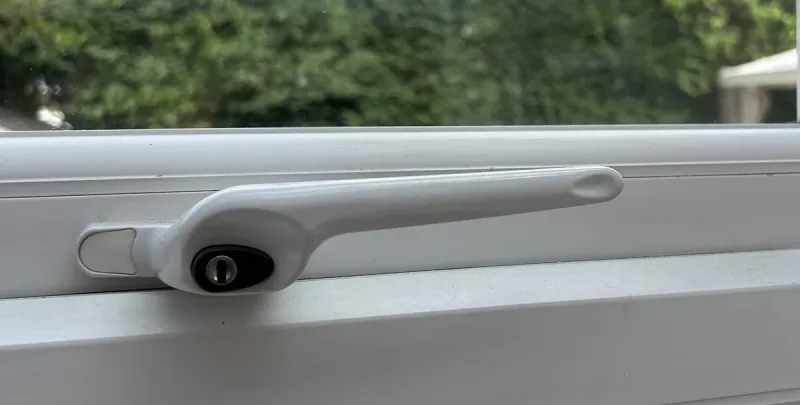The global banking crisis is affecting property markets all around the world. Commonly known as the credit crunch, it describes a shortage in availability and cost of credit to individuals as well as businesses. The credit crunch has created a recessionary process of fear, uncertainty and doubt in the minds of landlord investors, homeowners and potential first-time buyers. In United Kingdom, mortgage approvals are down 70% from previous years, and the number of property transactions is down 80%. This collapse in confidence has naturally reduced property prices. Many expect the lack of a mortgage lending to continue to drive down property prices further in the future. Everybody is tightening their belts and getting used to the new reality of job cuts, reduced business investment and bad news headlines bailout after bailout. So how did the credit crunch begin in the first place? and who is to blame for the current economic stability?
Over the last 50 years, retail banking has established itself in the UK as a traditional, safe form of borrowing and saving. Retail banks concentrated on UK markets, in which they lend money to potential homeowners and collected vast amounts of savings income from investors. During the 1980s, the level of banking globalisation increased in proportion to the deregulation of individual markets. In effect, banks were allowed to take more risks in order to obtain a greater profits for their shareholders.
Many larger retail banks created investment banks and lent money to overseas investors. Many other smaller financial institutions borrowed heavily to gear themselves, in order to lend and compete with larger rivals. Corporate debt was packaged up and resold to other financial institutions. This so-called ‘ toxic debt’ was kick-started by the sub prime mortgage collapse in United States of America. Credit rating agencies failed to accurately identify the risk associated with corporate debt and its impact on financial institutions both here in the UK and abroad. Many banks, building societies and specialist lending organisations borrowed excessively, in order to invest in funds linked to collateralised debt obligations.
The process of globalisation during these boom years was coupled with an increase in the speed of financial transactions, due to amazing advances in computer technology. The big bang in the City of London, heralded a new age of electronic money zooming around the world and uncontrollable speeds. At the same time financial instruments called hedge funds were created, allowing speculators to influence the price of company shares. These changes increased the speed and impact of volatility during times of uncertainty.
There is no denying that the 1980s and 1990's were generally a sustained period of growth and profitability. Shareholders were delighted with their dividends, stockbrokers received large bonuses, and ordinary homeowners saw the value of their properties rise in line with the growth in the economy. In addition, landlord buy to let investors saw huge rises in the capital value of their investment properties, while enjoying relatively low rates of interest on their buy to let mortgages. Many amateur landlords fed up with increasingly volatile stock market returns, dabbled in property investment. Some of these landlords are now in a situation of negative equity, due to falling property prices. Individuals were encouraged by financial institutions to have more credit, in the form of ridiculously high loan to value ratios on their mortgages, more credit cards and unsecured loans.
The impact of a credit crunch is still becoming a clear. House prices are falling, large UK industries collapsing, many small businesses canât borrow from the banks and individuals are losing their jobs. Banks are fearful to lend to each other despite government attempts to provide loan guarantees.Ironically the savings ratio of individuals is now going up, as families realise they must now put money aside for a bleak financial future ahead. This comes at a time when the government is trying to spend its way out of trouble and encourage consumers to spend more to keep the economy going and avoid deflation.
The enormous government banking bailout may expose the UK taxpayer to hundreds of billions of pounds. These losses will have to be funded by either tax increases or public sector spending decreases (in essentials like schools and hospitals) in the future. Perhaps it would have been cheaper to completely nationalise and restructuring the banking industry, (guaranteeing more mortgage and small business lending than at present) and then returning the banks to the private sector in a few years time? Much argument surround the impact of a collapse of a bank due to a run and that the consequences would be a lot worse if the banks were allowed to fail. How do they know? and how could it get any worse?
Was the last ten years real growth or simply a debt fuelled a boom, which nobody could really believe would ever end? During the boom years, regulators failed to put in place restrictions on corporate decision-making. Credit rating agencies failed to identify the risks. Governments merrily collected taxes from property purchases and share transactions. The culture of savings diminished during the boom years as a culture of greed took over. Yet voting consumers did not complain about the behaviour of their banks or lenders during the boom years. Consumers willingly took out additional credit to fund second cars, holidays, property extensions and by larger homes. It is very difficult to blame one group of individuals for the current mess.
Recent media attention has focused on ‘greedy bank bosses’ huge pension pots. These types of stories provide a colourful villain and a face to pull on the front page of newspapers to blame. While completely morally valid, these small circuses have diverted valuable media time and attention away important issues such as; who’s to blame the credit crunch? are taxpayer funded bailouts is the right solution? or is bank wide nationalisation inevitable? and most importantly. what action have politicians taken so far to change the law to prevent future generations from suffering the same fate? The media is failing to properly cover issues such as regulation of the banking system, controls over individuals ability to become indebted and the balance between private sector profit and public sector ownership.
What has become clear is that modern capitalist society is totally reliant on a culture of greed and confidence to keep it going. When confidence evaporates and liquidity dries up, the UK’s ability to innovate and grow diminishes. The country’s over reliance on a service-based economy and debt fuelled property growth must end quickly. Surely it’s time to also concentrate on investing in skills and training to support information technology and industrial based output. Property investors and homeowners alike will need to radically change the mindset to reflect a more reasonable rate of return in the future. It seems that none of us have learnt the hard lessons from past banking crisis.The most famous banking crisis was the great Depression of the 1930s, during which time overinflated stock markets meant individuals were highly exposed to fall in share prices. At the same time banks and corporate institutions borrowed too much and also failed to understand the level of bad debt in the financial system. So ultimately the government will have two provide a strong leadership strategy, made up of carrots and sticks to change the behaviour of banks, businesses and individuals.





























